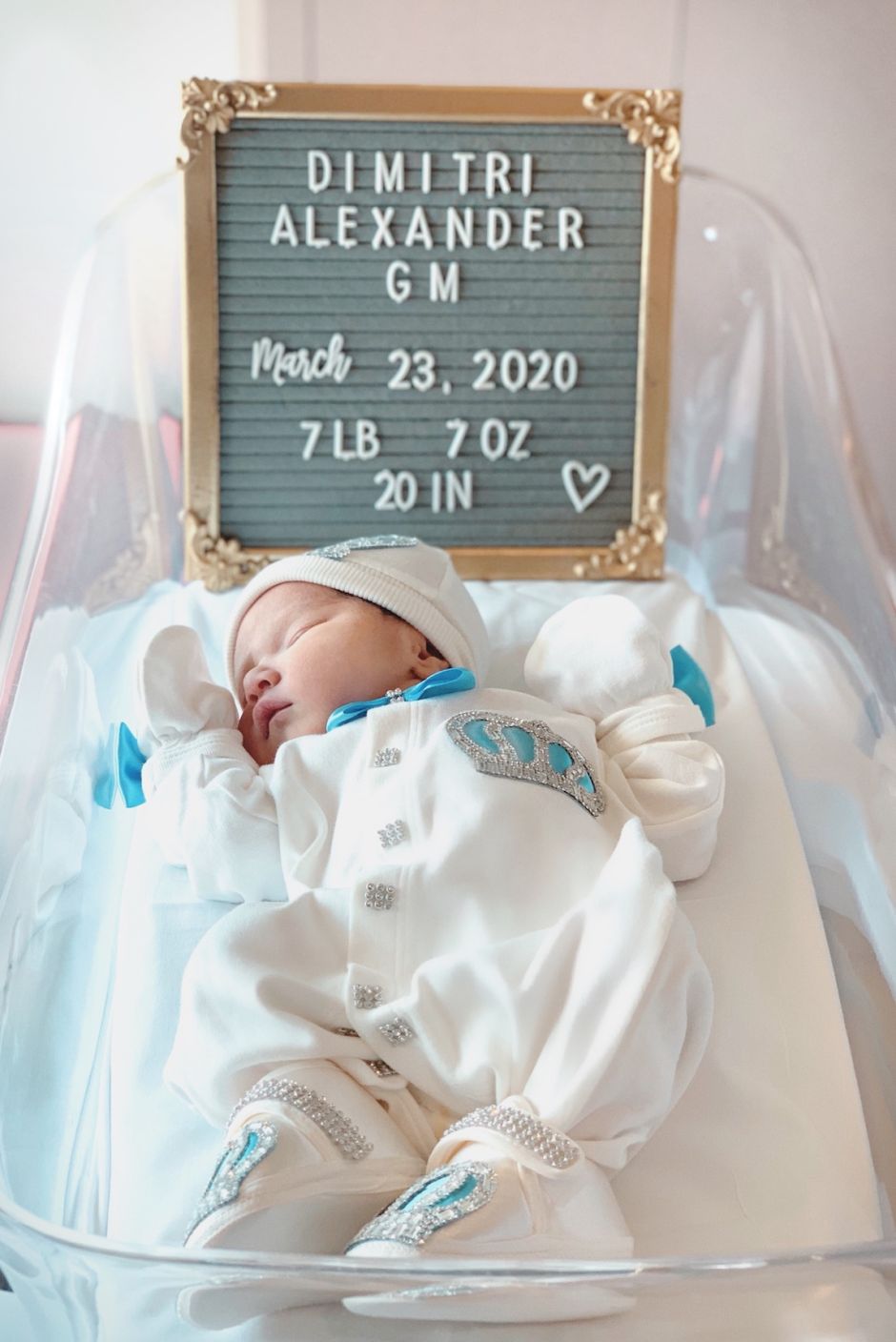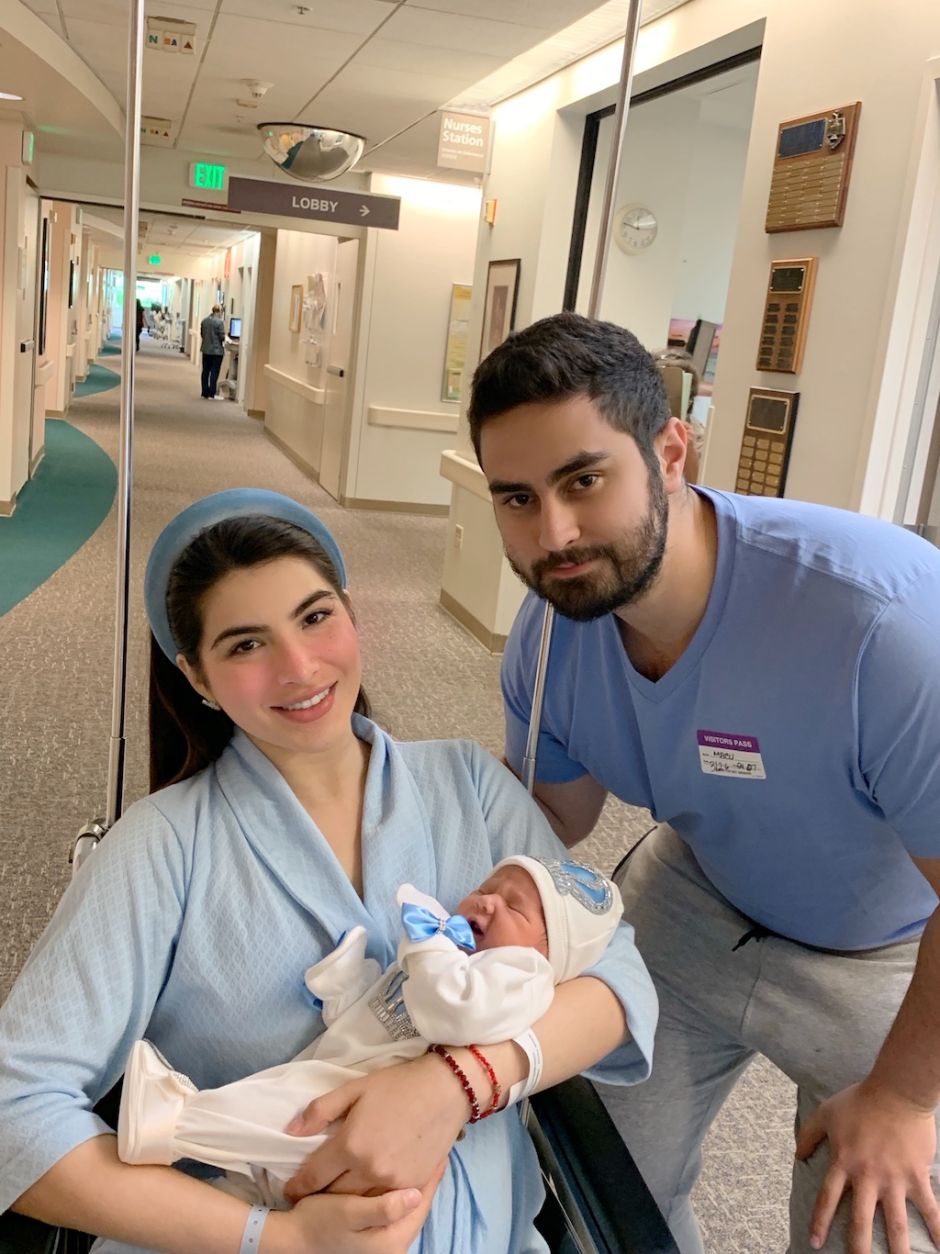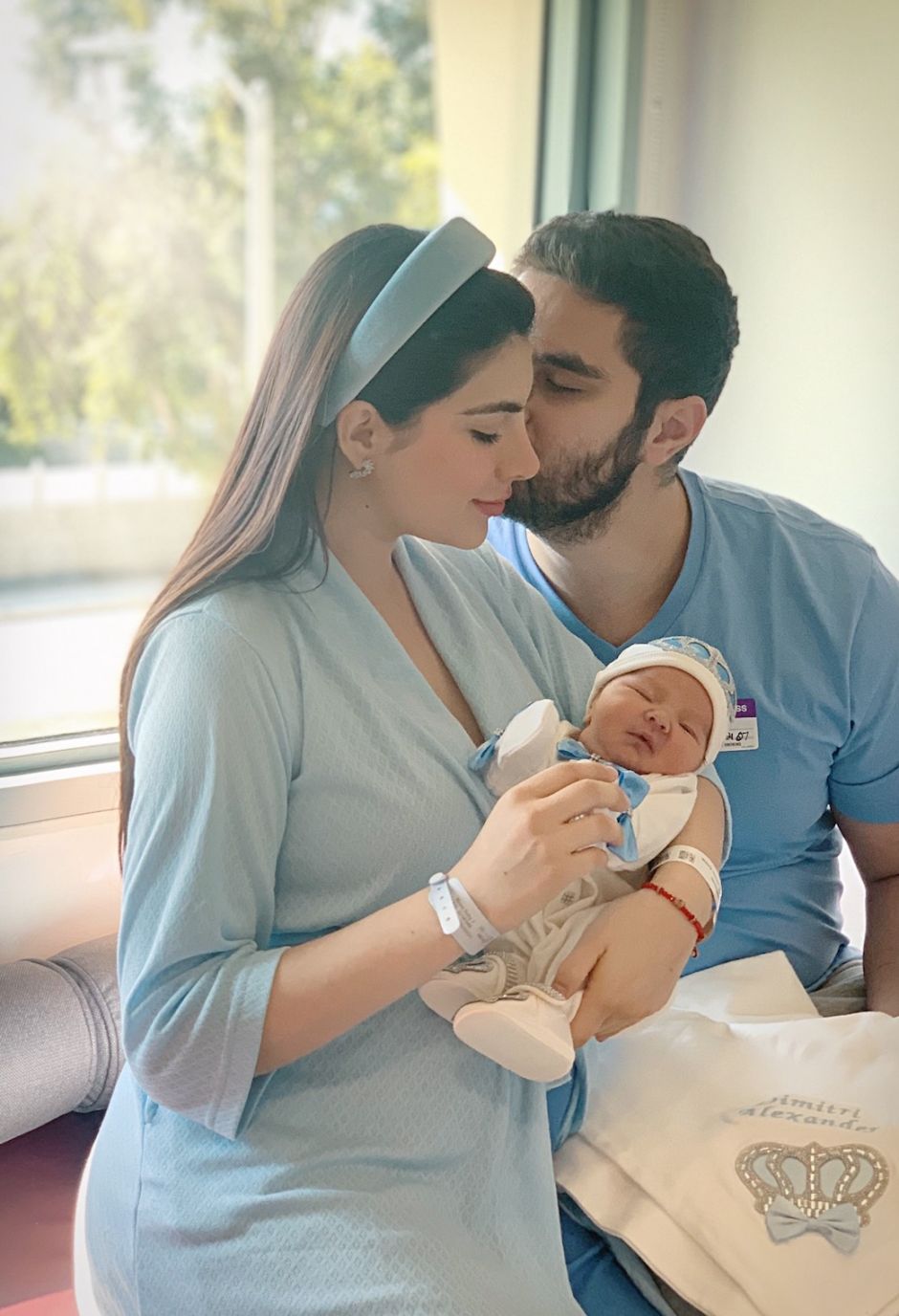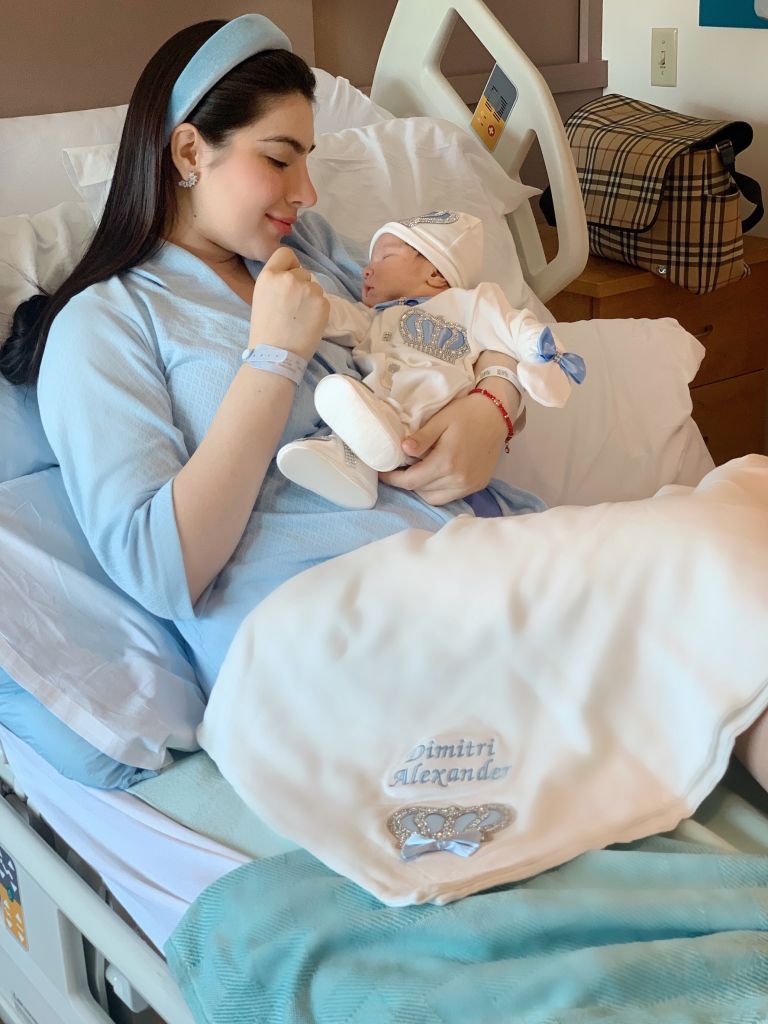The experience of giving birth during the pandemic under strict precautionary measures puts stress on mothers and their families
Dimitri Alexander Gutiérrez came into the world on March 23, almost at 11 p.m., a few weeks after the coronavirus health crisis erupted in California.
On March 4, California Governor Gavin Newsom and Los Angeles Mayor Eric Garcetti had declared an emergency and issued the order "Stay at home”To stop the progression of the disease that has put virtually the entire world in confinement.
Ruby Janet Muñiz had dreamed of giving birth to her first child next to her partner and the most important women in her life, her mother and mother-in-law, but it never occurred to her that a virus would prevent her from fulfilling her dream.
"Only my partner could accompany me in childbirth," says this mother who, at the age of 25, gave birth to her first child at the Queen of the Valley Maternity in the city of West Covina in Los Angeles County.

“Before the coronavirus, the doctor had told me that there would be no problem for my mother and mother-in-law to be in labor. When the epidemic appeared, I asked him again. He replied that only one person could enter. It was very sad, but we had to do it for the baby's sake, ”he says.
In the last days of her pregnancy, when COVID-19 had already become a real threat, Ruby Janet was quarantined and locked in her home.
"I was just going to the doctor's appointment, and I was wearing a mask and gloves. I was always reading stories of pregnant women during the coronavirus, and I was trying to stay informed, ”she says.
Ruby Janet's fountain broke on Sunday, March 22. She and her partner immediately went to the hospital, where they no longer let her go home.
“It was very stressful to be my partner and I, alone in the hospital waiting for the birth of my baby. They also didn't let us record the delivery, ”she recalls.
Because after giving birth, she had to undergo an emergency operation to remove the placenta, since it did not come naturally, she was hospitalized for four days. It also took several minutes for her baby to react at birth and was placed under observation. "It was very traumatic. It was not what I expected, "he says.

From a distance
Her parents and siblings met their baby almost a week after he was born.
“They all came to the house freshly bathed, wearing gloves and masks. They didn't go anywhere before they got there. They had to be content with meeting Dimitri Alexander from afar, ”he says.
She and her partner have not hesitated to take precautionary measures.
"When he enters the room where the baby and I are, he has to do it freshly bathed and with clean clothes."
She doesn't come out of her room at all. "We've only been to the doctor. My mother-in-law takes care of the house and my mother brings food. They are the only two people who have carried the baby, "he observes.
Ruby Janet takes great care in caring for her son because she knows that newborns don't have many defenses.
“I would have loved another experience at delivery, as I imagined it since I was a child. But I am following the rules to avoid the coronavirus because it is something very serious. "
And it looks for the positive side to the experience. "I have to be strong for my son. I just wish they find a cure for the disease, and everything calms down so we can return to normal life, ”he says.
Her greatest wish is to go outside with her son in her arms and introduce him to the world. "I'm dying to get it out and let him know everything."

Anguish and frustration
Rocío Higuera Muñiz, the grandmother of Dimitri Alexander, admits that she felt very distressed and frustrated at not being able to be at the birth of her first grandson as she planned with her daughter for nine months.
“Not even the lobby allowed us to enter. It affected me a lot emotionally, and I was scared when we got to the hospital and there were a lot of tents in the parking lot to receive all the possible coronavirus patients ”.
However, she says that upon reflection weeks later, already calmer, she understands that the security protocols taken by the hospital where her grandson was born were adequate to protect him and his daughter.
"I understand that now they do not allow even the husbands to go into labor. At least when my grandson was born, his father was allowed, "he says.
Rocío visits her daughter and grandson every two or three days. "I would have liked to be there every day with them as we had planned, but the coronavirus has not left us."
When she visits her grandson, she follows a whole cleaning ritual.
"I leave bathed and with clean clothes. I go straight to my daughter's house, without stopping along the way. Upon arrival, I take off my shoes, disinfect myself and wash my hands. I take care of myself as much as I can so that I can see my grandson and help my daughter, ”she says.
Although the birth of their first grandchild was not as they dreamed, this family has adapted to the established rules to prevent the spread of the coronavirus, and especially to protect the newborn.
“I had even thought about the words that I was going to say to my daughter the moment she gave birth. At first, I cried because the coronavirus frustrated our illusion, but Blessed God, the baby is good and healthy; although we are not going to be able to fully enjoy it until this epidemic ends, "says the happy grandmother.
And maybe when the child grows up, he says that he is going to ask them, where are the photos and the video of my birth. "We will have to tell him that he was born in a historical time, in the times of the coronavirus, and that we could not take him for his own protection and because they had us all confined to our homes."
Medical recommendations
Dr. Ilan Shapiro, medical director of wellness and health at the Altamed clinic, said that in order not to expose newborns to the epidemic, visits to meet him should be avoided, because even though they are breastfeeding, they have not developed their antibodies. "And if the relatives want to kiss them, kiss them in a photograph. Don't go near them, ”he warns.
It is convenient, he says, that if moms feel tired and stressed, ask their partner for help. “Get out of your room for about ten minutes and breathe a little bit. If you can, come out to air and let the sun hit you, ”he says.
He recommends that pregnant women take care of themselves, flee from the sick, wash their hands frequently, exercise the routine of social distancing and eat healthy meals.
The Center for Disease Control and Prevention (CDC) reveals on its website that transmission from mother to child during pregnancy is unlikely, but after birth, the newborn is susceptible to being transmitted from person to person.
They indicate that a small number of babies have tested positive for the virus shortly after birth. However, it is unknown whether they were acquired before or after birth.








